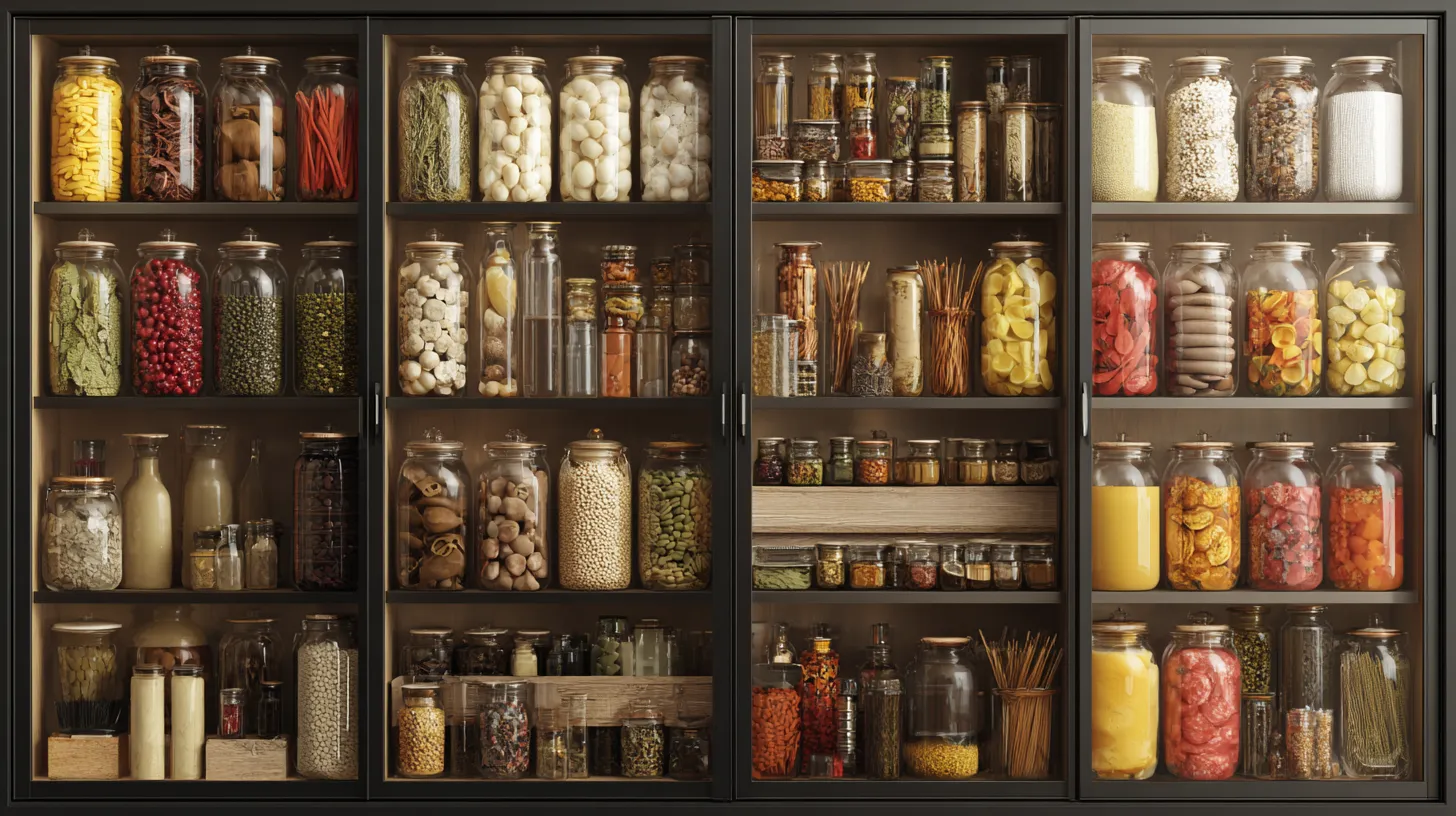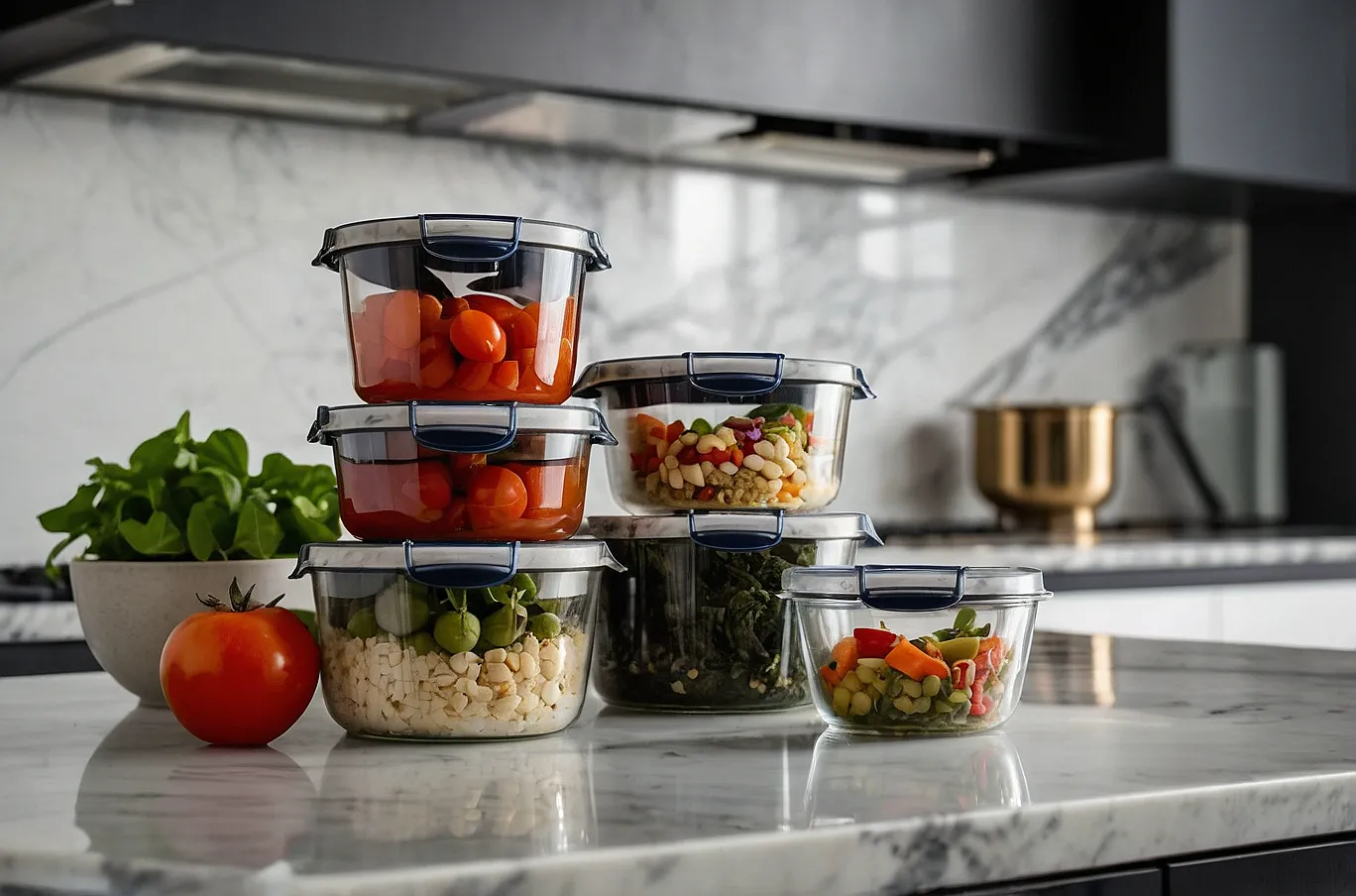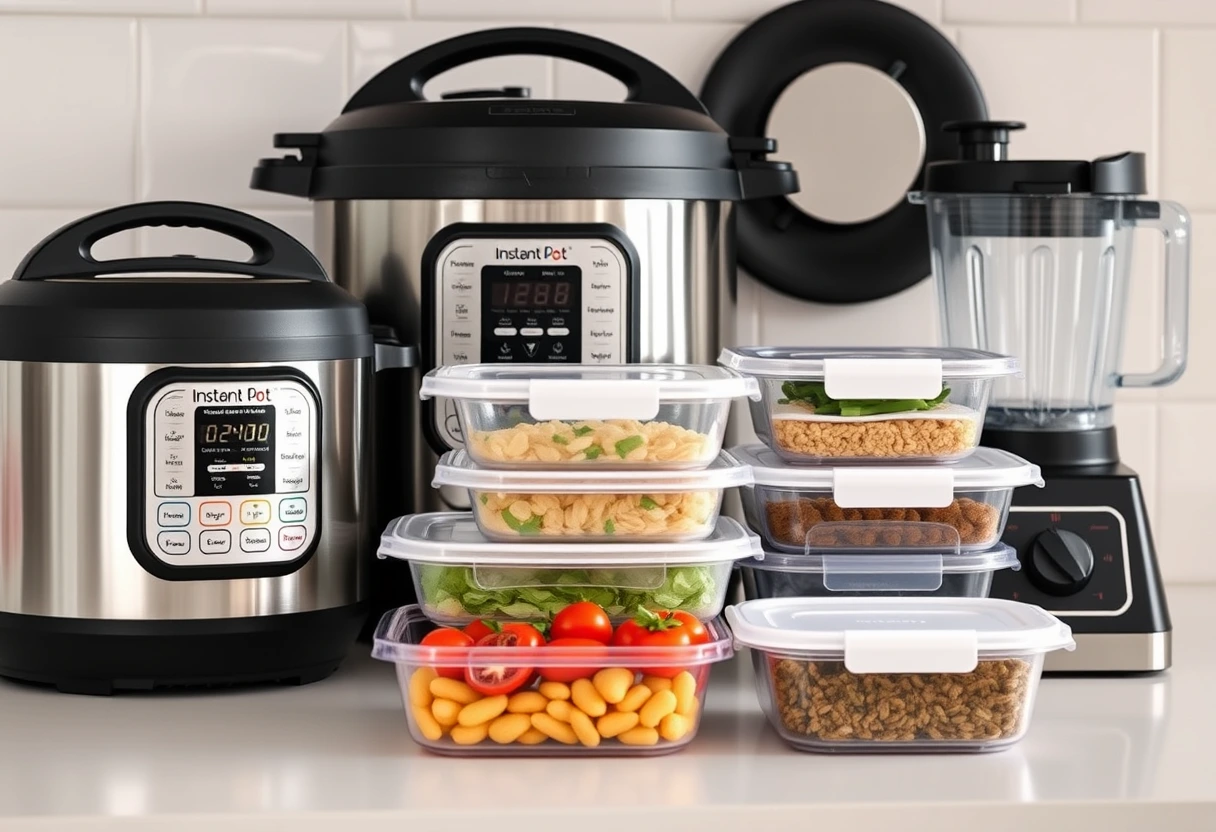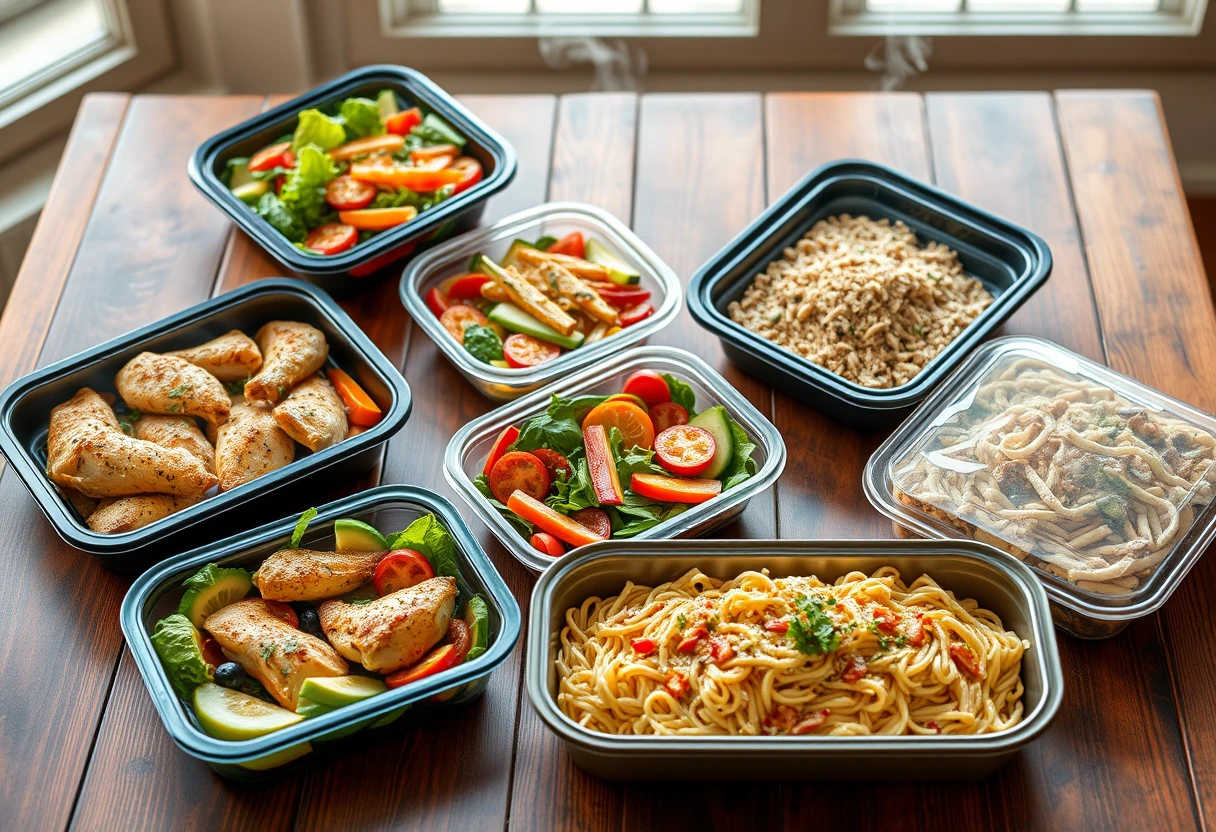 Other
OtherFast Family Meals Planned for Your Whole Week
As a busy young mother, the daily dinner dilemma can feel like an impossible puzzle. You’re juggling work, childcare, endless errands, and then suddenly, it’s 5 PM, and little voices are asking, "What's for dinner?" The thought of another takeout meal or a frantic last-minute scramble is enough to make anyone sigh in exasperation. But what if there was a way to reclaim your evenings, ensure your family eats nutritious meals, and drastically reduce stress? The answer lies in efficient meal planning and preparation, specifically focusing on how to get Fast Family Meals Planned for Your Whole Week.
This isn't about becoming a gourmet chef or spending your entire Sunday in the kitchen. It's about smart strategies, simple recipes, and a mindset shift that transforms dinner from a daily dread into a delightful, stress-free experience. We're diving deep into practical tips, delicious ideas, and proven methods to help you master the art of weeknight dinners, ensuring your family enjoys wholesome, home-cooked meals even on the busiest days. Get ready to embrace a more organized, calmer, and tastier family life!
The Power of Pre-Planning: Why It Works for Busy Moms
For young mothers, time is perhaps the most precious commodity. Every minute counts, and feeling overwhelmed by household tasks, especially meal preparation, can lead to burnout. This is precisely where the power of pre-planning comes into play. It's not just about cooking ahead; it's about making conscious decisions about your family's nutritional needs and managing your resources effectively. When you know exactly what you’re going to prepare each day, you eliminate decision fatigue and impulsive, often unhealthy, choices.
Eliminating Decision Fatigue and Stress
One of the biggest silent stressors for parents is the daily question of "what's for dinner?" This seemingly simple query can trigger a cascade of decisions: what ingredients do I have? What's healthy? What will everyone eat? Pre-planning removes this burden. By making these decisions once a week, you free up valuable mental energy for other important tasks, like spending quality time with your children or finally tackling that laundry mountain. A structured approach to your evening meals also provides a sense of control, which is incredibly empowering amidst the unpredictable chaos of motherhood.
Saving Time and Money
Believe it or not, planning your family's weekly meals can lead to significant time and financial savings. When you have a clear plan, you're less likely to make multiple trips to the grocery store, reducing gas costs and impulse purchases. Bulk buying ingredients for several meals is also more economical than buying small quantities for daily cooking. Furthermore, having ingredients prepped or meals partially cooked means dinner comes together much faster during the week, freeing up evenings for family activities or personal relaxation. This effective strategy helps families enjoy nutritious home cooking without breaking the bank or sacrificing precious family time.

Mastering the Art of the Weekly Meal Prep Schedule
Creating a successful weekly meal prep schedule is less about rigid adherence and more about finding a rhythm that works for your family. It involves a bit of upfront planning, but the payoff in terms of reduced stress and increased efficiency is immeasurable. The goal is to make healthy eating accessible and simple, even when life gets hectic.
Choosing Your Prep Day
The first step in mastering your schedule is identifying your "prep day." For many, Sunday is the ideal choice, offering a relaxed pace to dedicate a few hours to cooking and organizing. However, your prep day could be any day that best fits your family’s routine. The key is consistency. Make it a non-negotiable appointment with yourself. During this time, you'll tackle tasks like chopping vegetables, cooking grains, preparing sauces, or even fully assembling a few dishes for the week ahead. Consider involving older children in age-appropriate tasks to make it a family activity and teach them valuable life skills.
Theme Nights and Rotation Systems
To keep things interesting and simplify decision-making, consider implementing theme nights. Taco Tuesday, Pasta Wednesday, or "Breakfast for Dinner" Friday can add an element of fun and predictability. This system not only helps with planning but also ensures variety in your family's diet. Another effective strategy is a meal rotation system. Instead of coming up with entirely new ideas each week, create a list of 20-30 family-favorite dinners and rotate through them. This reduces planning time significantly and ensures everyone is happy with the menu. It also makes grocery shopping much more efficient as you're likely buying many of the same staples each time. Think about how these efficient weekly meal plans simplify your routine.
Essential Tools and Kitchen Gadgets for Quick Cooking
While you don't need a professional kitchen to whip up delicious, quick meals, certain tools and gadgets can significantly streamline your cooking process. Investing in a few key items can save you hours of prep time and make cooking more enjoyable.
Time-Saving Appliances
Modern kitchen appliances are designed with efficiency in mind. An Instant Pot or pressure cooker, for example, can cook tough cuts of meat or dried beans in a fraction of the time compared to traditional methods. A slow cooker allows you to "set it and forget it," delivering warm, hearty meals with minimal effort, perfect for busy weekday evenings. A high-speed blender is invaluable for smoothies, sauces, and pureed soups. An air fryer offers a healthier, quicker alternative to deep frying, perfect for crispy vegetables or chicken nuggets. These appliances are game-changers for any parent looking to simplify their cooking routine and produce great family meals.
Smart Storage Solutions
Having the right storage solutions is just as important as having the right cooking tools. Airtight containers, both glass and BPA-free plastic, are essential for storing prepped ingredients and cooked meals, keeping them fresh longer. Mason jars are excellent for layered salads or overnight oats. Consider investing in meal prep containers with multiple compartments to keep different food items separate. Labeling your containers with the meal name and date cooked will help you stay organized and ensure food safety. Proper storage extends the shelf life of your ingredients and prepared dishes, meaning fewer food scraps and more convenience. This attention to detail ensures your fast family meals planned for your whole week remain fresh and delicious.

Batch Cooking Basics: Maximizing Your Prep Time
Batch cooking is the cornerstone of effective meal prepping for families. It involves cooking larger quantities of staple ingredients or entire dishes that can be used in multiple meals throughout the week. This strategy dramatically reduces daily cooking time and ensures you always have components on hand for a quick, healthy dinner.
Proteins and Grains
One of the easiest ways to get started with batch cooking is by focusing on proteins and grains. Cook a large batch of chicken breast (shredded or diced), ground beef, or lentils. These cooked proteins can be easily incorporated into salads, tacos, pasta dishes, or stir-fries. Similarly, cooking a large pot of quinoa, brown rice, or pasta at the beginning of the week saves precious time on busy nights. These versatile bases can be quickly transformed into a variety of dishes. Imagine pulling pre-cooked chicken from the fridge and having tacos ready in minutes instead of an hour. These prepared ingredients are critical for truly efficient meal preparation for families.
Chop and Store Vegetables
Pre-chopping vegetables is a game-changer. On your prep day, wash and chop onions, bell peppers, carrots, celery, and broccoli florets. Store them in airtight containers in the refrigerator. This means when it's time to make a stir-fry, soup, or even just a quick side dish, the most time-consuming part of the preparation is already done. Some vegetables like leafy greens or mushrooms are best chopped closer to use, but many can hold up well for several days. This simple habit drastically cuts down on the effort required for daily meal assembly, ensuring quick dinner solutions are always within reach.
Delicious and Diverse Meal Ideas for Busy Families
The myth that meal prepping leads to boring, repetitive meals couldn't be further from the truth! With a little creativity, you can create a diverse menu that excites your taste buds and keeps your family looking forward to dinner.
One-Pot Wonders and Sheet Pan Dinners
For ultimate convenience and minimal cleanup, embrace one-pot wonders and sheet pan dinners. These meals often involve tossing ingredients (protein, veggies, sometimes a carb) onto a single pan or into one pot, seasoning, and baking or simmering until done. Examples include sheet pan sausage and veggies, one-pot pasta with chicken and broccoli, or a hearty stew. They require very little active cooking time and make cleanup a breeze, which is a major win for tired parents. These options are fantastic for creating quick meal solutions for the family without a lot of fuss.
Creative Leftover Transformations
Don't just reheat leftovers; transform them! A large batch of roasted chicken can become chicken tacos on Monday, chicken salad sandwiches on Tuesday, and a chicken and vegetable soup on Wednesday. Leftover rice can be turned into fried rice or a base for a grain bowl. Cooked ground beef can be used for tacos, pasta sauce, or even a quick shepherd's pie topping. This approach ensures variety and minimizes food waste, making your meal prep efforts stretch further. It truly maximizes your investment in those ready-to-eat meals.
- Monday: Sheet Pan Lemon Herb Chicken & Roasted Veggies
- Tuesday: Quick Chicken Tacos (using leftover chicken)
- Wednesday: Pasta with Homemade Marinara & Meatballs (sauce and meatballs prepped)
- Thursday: Loaded Baked Potatoes (pre-cooked potatoes, various toppings)
- Friday: "Breakfast for Dinner" Scramble with Pre-Chopped Veggies

Involving Your Family in the Meal Prep Journey
Meal prep isn't just a solo mission; it's an opportunity to involve your entire family, fostering a sense of teamwork and teaching valuable life skills. When everyone contributes, the burden lessens, and the appreciation for homemade meals grows.
Age-Appropriate Tasks for Kids
Even young children can participate. Toddlers can wash fruits and vegetables, stir ingredients, or put away non-breakable items. Older children can help with measuring, chopping (with supervision), reading recipes, or setting the table. Involving them in the planning process – letting them choose one meal for the week, for example – also increases their buy-in and makes them more likely to eat what's prepared. This collaborative approach makes the journey to delicious family meals a shared effort.
Making it a Fun Family Activity
Turn meal prep into a fun family activity. Put on some music, tell stories, or even make it a game. Cooking together can be a wonderful bonding experience and a chance to teach kids about nutrition and where their food comes from. When children are involved in the process, they are more likely to try new foods and develop a healthier relationship with eating. These shared moments make preparing weeknight meals a joyful occasion.
Addressing Common Meal Prep Challenges
Even with the best intentions, meal prep can present challenges. It's important to anticipate these and have strategies in place to overcome them, ensuring your system remains sustainable.
Picky Eaters Solutions
Dealing with picky eaters is a universal parenting challenge. When meal prepping, try "deconstructed" meals where components are kept separate. For example, serve tacos with separate bowls of meat, cheese, lettuce, and salsa, allowing each family member to assemble their own. You can also incorporate "hidden" vegetables into sauces or smoothies. Always offer at least one component that you know your child likes, and encourage them to try new things without pressure. Consistency and offering variety within a planned structure can lead to positive changes over time. Remember, the goal is balanced family eating, not just getting them to eat everything.
Maintaining Variety and Avoiding Burnout
The biggest pitfall of meal prep is often boredom or burnout. To maintain variety, rotate your recipes regularly, explore new cuisines, or add new spices and herbs to familiar dishes. Don't feel pressured to prep every single meal; sometimes just prepping dinners or school lunches is enough. Incorporate "flex" nights where you use up leftovers or order takeout without guilt. Listen to your body and adjust your schedule as needed. A flexible and adaptable meal strategy is key to long-term success, ensuring you continue to provide wholesome meals for the whole family without feeling overwhelmed.
- Experiment with global flavors: Try a Thai curry one week, Mexican fajitas the next.
- Utilize seasonal produce: Builds freshness and keeps costs down.
- Theme variations: Instead of "Taco Tuesday," try "Burrito Bowl Tuesday" or "Quesadilla Tuesday."
- Incorporate "build-your-own" meals: Pizza night, salad bars, or pasta bars allow customization.
- Allow for spontaneity: One night a week can be "chef's choice" or a simple, quick meal assembly.
Sustaining Your Meal Prep Habits for the Long Haul
Starting a meal prep routine is one thing; sticking with it is another. Sustaining your meal prep habits requires patience, flexibility, and a willingness to adapt as your family's needs evolve. The objective is to make this a natural, enjoyable part of your weekly routine, rather than another chore.
Flexibility and Adapting to Change
Life with young children is inherently unpredictable. There will be weeks when illness strikes, schedules change unexpectedly, or you simply don't have the energy for a full prep session. On these weeks, be kind to yourself. Opt for simpler meals, rely on your freezer stash of prepped components, or accept that takeout is okay occasionally. The goal is progress, not perfection. A flexible mindset allows you to bounce back and get back on track without feeling defeated. Your journey to enjoying family meals should be stress-free, not a source of guilt.
Celebrating Small Wins and Learning from Setbacks
Acknowledge your efforts and celebrate every small win! Did you successfully plan and cook four dinners this week? That's fantastic! Did a meal not turn out as planned? Learn from it, adjust the recipe next time, or explore what went wrong. Every attempt, successful or not, is a step towards mastering your kitchen routine. Share your successes with your partner or friends; support makes a huge difference. Building these sustainable habits ensures you'll consistently provide nutritious and fast family meals planned for your whole week, year after year.
Embracing meal planning and prep, especially for Fast Family Meals Planned for Your Whole Week, is one of the most impactful changes you can make as a busy young mother. It’s an investment in your well-being, your family's health, and your precious time. By adopting smart strategies, leveraging helpful tools, and involving your loved ones, you can transform chaotic weeknights into calm, nourishing, and enjoyable dinner experiences. Start small, be consistent, and watch as your family thrives on delicious, home-cooked meals, giving you back the evenings you deserve.
